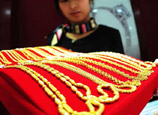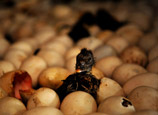
"She is not the first case (to be naturalized to play in Japan)," Xu said. "If we want to keep our own talents at home, the governing body, sponsors and the whole society have to do better jobs in player education, salaries and post-career employment to make the league more appealing than overseas destinations."
According to a poll on the CBA's official website, 8,515 participants agreed with Li Xin that "Li Mingyang shouldn't join the Japanese league" while 6,325 supported the move, saying, "the public should respect the player's decision".
While the CBA has lured a number of lucrative sponsorship deals and attracted increased media interest over the past few years, China's female league, the WCBA, has been struggling since its 2001 inception.
The CBA signed a five-year sponsorship deal, which was reportedly worth $323 million, with domestic sportswear giant Li-Ning last year; the WCBA is still without a major sponsor.
According to a China Youth Daily report, this year's WCBA champion team, Shanxi Flame, received operating funds of $800,000 - only a sixth of a CBA team's annual budget - before the 2012-2013 season.
Boasting better incentives and the chance to acquire Japanese citizenship, the Japanese league has lured three other Chinese players, including former national reserve team member Li Shasha, since 2008.
Those defections didn't draw much attention in China as none of those players played major roles, like Li, in the WCBA or with the national team.
Born in 1994, Li honed her skills with the Beijing team at an early age and represented China at the FIBA Under-17 World Championships, where she averaged 6.4 points and 6.2 rebounds in 2010.

















 China's weekly story
China's weekly story
(2013.4.8-4.12)


![]()
